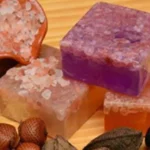During the abuse of process hearing, audio recordings were presented in court.
On Wednesday, during a police raid at a blockade of the Coastal GasLink pipeline construction in November 2021, audio recordings of RCMP officers calling First Nations pipeline opponents “orcs” and “ogre” were played in court.
Sleydo, also known as Molly Wickham, a Wing Chief of Cas Yikh, a house group of the Gidimt’en Clan of the Wet’suwet’en Nation; Shaylynn Sampson, a Gitxsan woman with Wet’suwet’en family ties; and Corey Jocko, a Kanien’kehá:ka (Mohawk) from Akwesasne, which straddles the Quebec, Ontario, and New York state borders, submitted the recordings as evidence in the B.C. Supreme Court in Smithers.
The accused violated a 2019 injunction that forbids anyone from obstructing work on the Coastal GasLink pipeline, and they were found guilty of criminal contempt of court last week.
According to the abuse of process application, the RCMP mistreated the individuals in custody and used excessive force during their arrest. In the filing, it is requested that the judge consider reducing the defendants’ sentences in light of the way the police handled them, should their charges not be stayed.
Defense attorney Frances Mohan played three audio clips to RCMP Supt. James Elliott, a commander on the emergency response team, during the cross-examination.
Documentary filmmaker Michael Toledano and journalist Amber Bracken, who was working for The Narwhal at the time, provided the audio recordings. On November 19, 2021, both were taken into custody at a small home on the Marten Forest Service Road.
Microphones that were left on during the arrests captured the audio. In 2022, The Narwhal published a few of these recordings.
Witnesses to an audio recording played in courtroom can be heard police calling people wearing face paint “orcs.” The fictional monsters known as orcs are characterized by their ugliness, aggression, and brutishness.
When Sleydo and Sampson were arrested on November 19, 2021, they had red handprints painted over their mouths and were both wearing red dresses. Indigenous women and girls who have been murdered or gone missing are represented by both handprints and red dresses.
“It is especially offensive when that red handprint refers to the missing and murdered Indigenous women and girls movement, to compare that to monsters from a fantasy series,” Mahon said.
Elliott apologized for the officers and stated that this was unacceptable, even though he was unsure of the identities of the officers on the recording.







